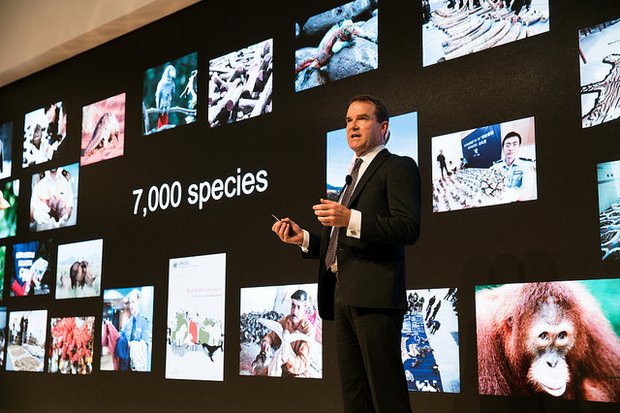
Authorities from 10 Asean members and China have pledged to join forces to combat the illegal wildlife trade.
The authorities in charge of suppressing the trade announced Wednesday their commitment to crack down on it in Asia at the three-day 4th Regional Dialogue on Combating Trafficking of Wild Fauna and Flora hosted by the Department of National Parks, Wildlife and Plant Conservation.
About 100 representatives from Asean countries, China and international organisations such as USAID Wildlife Asia, Interpol and the secretariat of the Convention on International Trade in Endangered Species of Wild Fauna and Flora (Cites) attended the conference, which ends Friday.
They presented a progress report and agreed to work more closely in curbing the illegal trade.
A representative from China, who asked not to be named, said Beijing is deeply concerned about the trade and metes out stiff punishments.
"Beijing has focused on both domestic and international training against [the illegal] wildlife trade, especially for officers at key airports,'' she said.
Chinese authorities are keen to collaborate with their Asean counterparts in terms of sharing information and training, she said.
The Asian superpower has seen demand for illegal wildlife products decline 80%, with 6.1 tonnes of confiscated ivory already destroyed, she added.
Over the last decade, Chinese customs officials have investigated 11,000 cases of wildlife and flora smuggling. More than 12,000 people were arrested and 240 tonnes of endangered species and products were confiscated, she said citing a domestic report.
Meanwhile, Laos is now working with NGOs to draw up a plan to phase out tiger farms in the country. The government has also shut down the domestic ivory market and is cooperating with Cites to curb such trade in the region, said the Laos representative.
Natural Resources and Environment Minister Gen Surasak Kanjanarat said Thailand has received positive feedback for its moves to deal with illegal timber, especially Siamese rosewood.
It has also met with success in curbing illegal ivory shipments from African countries, he said. This prompted Cites to downgrade its level of concern for the country from "primary" to "secondary", Gen Surasak added.
"We want to extend our efforts to other animals and products beyond ivory," he said.
"We plan to have stronger control over how such wildlife is transported in Thailand en route to other markets. We can't solve the problem alone. Asean must unite," he said.
The illegal wildlife trade is still a prime global concern given its impact on the environment and ecological systems, said Scott Perkin of the International Union for Conservation of Nature and Natural Resources (IUCN).
The IUCN has worked with Thailand on the cross-border wildlife trade, he said.